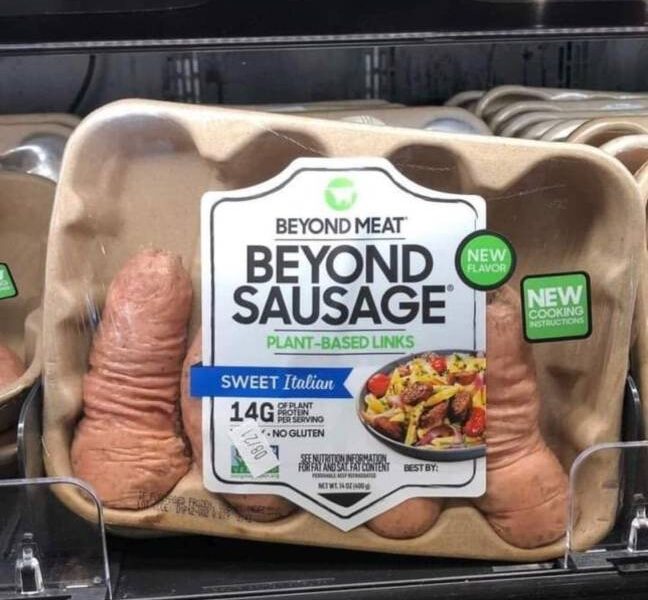A new study suggests that the best way to get people to go plant-based is to give them little to no choice in the matter. Seriously.
The study, out of the University of Westminster, reports that meat-eaters are much more likely to choose a plant-based meal if most of the options they have to choose from are plant-based. Study authors conclude that menus which are at least three-quarters vegetarian have the best chance of converting a carnivore.
These findings chime with other recent research which has showed that only social pressure, not health or taste claims, is really effective in getting people to choose plant-based alternatives, and with changing attitudes from governments, such as that of the UK, which are quickly coming round to the notion of giving people no choice whether to go plant-based.
Plant-based: they’ll eat it if you give them little to no choice

The study investigated the extent to which expanding vegetarian options in relation to available meat options sways eating decisions among people who usually eat meat. Researchers think of this as “nudging” individuals toward a plant-based diet.
Participants were randomly shown various menus showing different proportions of both meat and plant-based food options.
The researchers found that a menu with 25 or 50% vegetarian options would not sway meat-eaters’ decisions. Habitual carnivores only chose a veggie option if at least 75% of the menu was vegetarian.
Israeli company announces the creation of the world’s largest lab-grown steak
An Israeli company recently unveiled the world’s largest lab-grown steak.
MeaTeach showed off a 3.67 ounce (105g) steak made from real fat and muscle cells that had been taken from cows and then cultured in a lab. The cells were then assembled using a special 3D-printer.
“MeaTech’s goal is developing a true replacement for conventional steak that maximizes cell-based content rather than non-meat ingredients,” the company said in a press release about the new lab-grown steak.
“MeaTech intends to continue improving upon its bioprinting and cultivation technologies to produce cultivated meat that better mirrors the key characteristics of farm-raised, premium steak.”
Click here to read more about this appetising new announcement
In light of the results, the researchers theorize that more vegetarian options led the participants to chose plant-based options due to two factors. First, more green options “implicitly suggested” that it’s normal to eat such dishes. Second, the enhanced variety is likely to have proven more attractive, the researchers say.
“This intervention shows the potential that the food service sector has in creating large scale shifts to encourage meat eaters to change their preferences. The findings provide practical instruction on what percentage of their food offerings should be vegetarian if they are to succeed in encouraging sustainable eating behaviors.
“If the food service industry are to decrease their carbon footprint, they need to act by providing far more plant-based items than currently on offer,” concludes lead study author Dr. Beth Parkin in a university release.
In conclusion, the research team believes their research shows that the food sector can indeed make a difference regarding the promotion of sustainable food choices. More specifically, they argue that the way in which the food and restaurant industries present options to consumers needs to change, without these changes necessarily attempting to convince anyone of the benefits of pro-environmental diets.
To others, however, this will look like a mere euphemism for the end of consumer choice as we know it – and we’d be inclined to agree with them.
It’s clear that plant-based manufacturers are already getting wise to the fact that taste and health claims alone will not sell their products, as major brands like Beyond and Impossible continue to post poor performance, despite massive hype campaigns.
Oatly, manufacturer of oat “milk”, harnessed shame in a very powerful way in its recent “Help Dad” campaign, for instance. The campaign features woke teenagers shaming their hopelessly un-PC fathers for daring to choose traditional cow’s milk instead of Oatly’s sugary, vegetable-oil laden concoction.
And as the debate about climate change and the environment takes on an increasingly alarmist tone, commentators with links to government are already suggesting meat taxes and that governments will have to find ways to “force people to eat less red meat.”
The UK government’s National Food Strategy, a government investigation into the future of food in the UK, recently reported that algae and plant-based meat would have to make up a significant proportion of people’s diets in the UK if the government is to meet its carbon targets.
Let’s hope these intimations of the death of consumer choice are premature.











